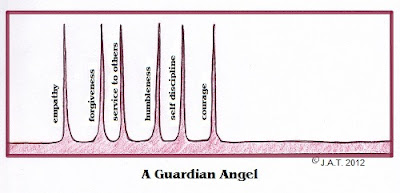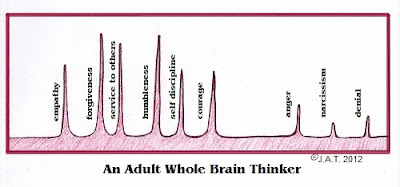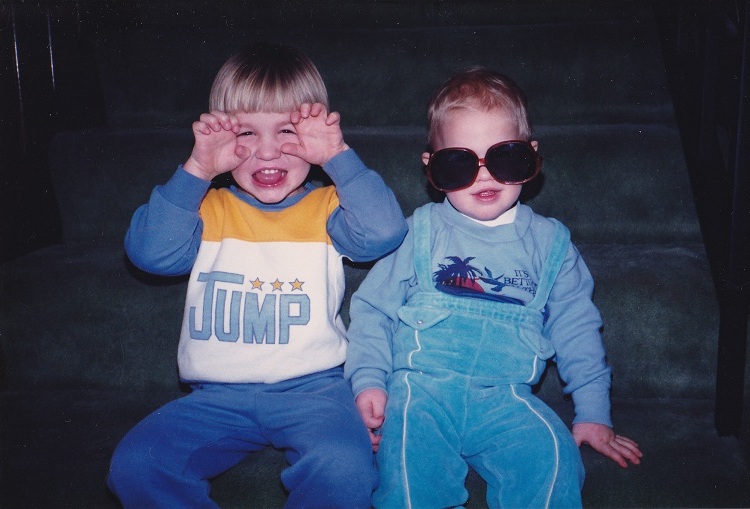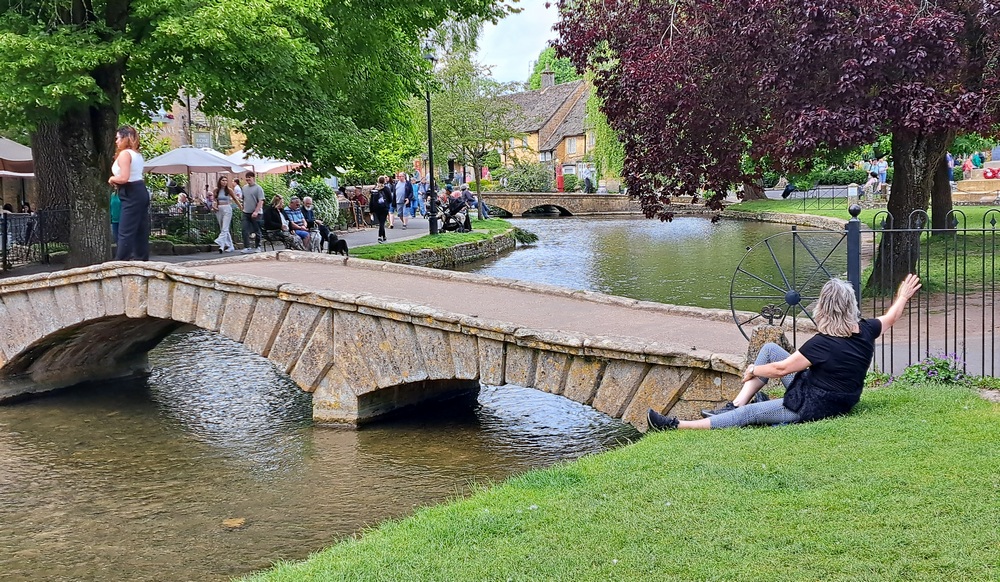A: On Thursday evening I was having dinner with someone who’s very dear to me, and she made the fatal mistake of asking me why I’m upset with the United Church of Canada. Boy, did she get an earful! I think I exhausted her with my exhaustive analysis of the differences between Paul and Mark. However, she kept asking for clarifications, so I kept giving them. She was very surprised at the stark differences between what Paul wrote and what Mark wrote. Many years ago she was quite involved with the Alliance Church (though she’s long since given up on evangelical Christianity), and for several years in her younger days she worked in a Christian bookstore. Despite her extensive exposure to Christian teachings and easy access to books and other research materials, she had no idea that Paul’s letters were written before Mark, Matthew, and Luke. Nor did she have any inkling that Mark’s theology differs from Paul’s on all major points. She immediately saw the significance, though. And she seemed genuinely pleased to learn that Paul’s “oppression”, as she called it, isn’t the only option available to her as an “unchurched” person. So I thought perhaps you and I could begin to do some on-line exegesis, some on-line commentary, on the specific differences between Paul’s theology and Mark’s theology. Are you game?
J: Sign me up.
A: I’ve already done extensive research on this topic with your help, but from the point of view of academic integrity and bibliographic acknowledgement, I’ll take a few minutes to list the books that have been helpful to me in my research . . . on second thought, I think I’ll just cut and paste the Bibliography from my Master’s cognate paper. That would be a lot faster [see below]. For any socio-historical criticism or source criticism keeners out there, I’ll mention that I’ve taken two semesters of Koine Greek — not enough to make me fluent, but enough to help me find my way around a lexicon, a good concordance, a Greek-English interlinear, and helpful collections such as The New International Dictionary of New Testament Theology and The Anchor Bible Dictionary. I also gratefully incorporate findings from archaeology (I love Biblical Archaeology Review!), neuroscience, and psychiatry into my biblical research. Anyone who wants to check a full bibliographic reference can refer back to this post as we go along.
And yes — I had to wade through Plato’s writings on my own to see what he had to say about the soul, so when you hear me complain about the negative influence of Plato on Christian thought, it’s because I had to read it firsthand. There’s nothing like a dose of Plato’s mega-narcissism to make a person want to throw up.

St. Mary’s Roman Catholic Cathedral, Halifax NS. Photo credit JAT 2025.
RESEARCH BIBLIOGRAPHY 2010
Armstrong, Karen. The Spiral Staircase: My Climb Out of Darkness. Toronto: Vintage Canada, 2004.
Atchity, Kenneth J., ed. The Classical Greek Reader. Oxford: Oxford University Press, 1996.
Barnes, Timothy David. Tertullian: A Historical and Literary Study. Oxford: Clarendon Press, 1971.
Beauregard, Mario and Denyse O’Leary. The Spiritual Brain: A Neuroscientist’s Case for the Existence of the Soul. New York: HarperCollins–HarperOne, 2007.
Berlin, Adele and Marc Zvi Brettler, eds. The Jewish Study Bible: Jewish Publication Society TANAKH Translation. Oxford: Oxford University Press, 2004.
Bremmer, Jan. The Early Greek Concept of the Soul. Princeton: Princeton University Press, 1983.
Burkert, Walter. Greek Religion. 1977. Translated by John Raffan. Cambridge, MA: Harvard University Press, 1985.
Clagett, Marshall. Greek Science in Antiquity. New York: Barnes and Noble, 1994.
Coakley, Sarah. “Introduction – Re-Thinking Dionysius the Areopagite.” Modern Theology 24, no.4 (2008): 531-540.
Coogan. Michael D., ed. The New Oxford Annotated Bible: New Revised Standard Version with the Apocrypha, College Edition. 3rd ed. Oxford: Oxford University Press, 2001.
Cook, Stephen L. The Apocalyptic Literature. Nashville: Abingdon Press, 2003.
Doidge, Norman. The Brain That Changes Itself: Stories of Personal Triumph from the Frontiers of Brain Science. New York: Penguin, 2007.
Duling, Dennis C. “Kingdom of God, Kingdom of Heaven.” In The Anchor Bible Dictionary, vol. 4, edited by David Noel Freedman, 49-69. New York: Doubleday, 1992.
Dunn, Geoffrey D. “Tertullian’s Scriptural Exegesis in De Praescriptione Haereticorum.” Journal of Early Christian Studies 14, no. 2 (Summer 2006): 141-155.
Ehrman, Bart D. Jesus, Interrupted: Revealing the Hidden Contradictions in the Bible (and Why We don’t Know About Them). New York: HarperCollins–HarperOne, 2009.
——. Lost Christianities: The Battles for Scripture and the Faiths We Never Knew. Oxford: Oxford University Press, 2003.
——. The Lost Gospel of Judas Iscariot: A New Look at Betrayer and Betrayed. Oxford: Oxford University Press, 2006.
Elbert, Jerome W. Are Souls Real? Amherst, NY: Prometheus, 2000.
Esser, Hans-Helmut. “Law, Custom, Elements.” In The New International Dictionary of New Testament Theology, vol. 2, rev. ed., edited by Colin Brown, 436-456. Grand Rapids, MI: Zondervan, 1986.
Funk, Robert W. and Mahlon H. Smith. The Gospel of Mark: Red Letter Edition. The Jesus Seminar. Sonoma, CA: Polebridge Press, 1991.
Gmirkin, Russell E. Berossus and Genesis, Manetho and Exodus: Hellenistic Histories and the Date of the Pentateuch. Library of Hebrew Bible/Old Testament Studies 433 and Copenhagen International Series 15. New York: T & T Clark, 2006.
Goetzmann, Jurgen. “σύνεσις.” In The New International Dictionary of New Testament Theology, vol. 3, rev. ed., edited by Colin Brown, 130-134. Grand Rapids, MI: Zondervan, 1986.
González, Justo L. From the Beginnings to the Council of Chalcedon, Vol.1 of A History of Christian Thought. Rev. ed. Nashville: Abingdon Press, 1987.
Gottwald, Norman K. The Hebrew Bible: A Socio-Literary Introduction. Philadelphia: Fortress Press, 1985.
Griffith, R. Drew. Mummy Wheat: Egyptian Influence on the Homeric View of the Afterlife and the Eleusinian Mysteries. Lanham, MD: University Press of America, 2008.
Hanson, K.C. and Douglas E. Oakman. Palestine in the Time of Jesus: Social Structures and Social Conflicts. Minneapolis: Fortress Press, 1998.
Harder, Georg. “νος.” In The New International Dictionary of New Testament Theology, vol. 3., rev. ed., edited by Colin Brown, 122-130. Grand Rapids, MI: Zondervan, 1986.
——. “ψυχή.” In The New International Dictionary of New Testament Theology, vol. 3., rev. ed., edited by Colin Brown, 676-689. Grand Rapids, MI: Zondervan, 1986.
Hodges, Henry. Artifacts: An Introduction to Early Materials and Technology. Rev. ed. London: John Baker, 1976.
Holladay, William L., ed. A Concise Hebrew and Aramaic Lexicon of the Old Testament. Based upon the lexical work of Ludwig Koehler and Walter Baumgartner. Grand Rapids, MI: Eerdmans, 1988.
Horsley, Richard A. Jesus and Empire: The Kingdom of God and the New World Disorder. Minneapolis: Fortress Press, 2003.
——, ed. Paul and Empire: Religion and Power in Roman Imperial Society. Harrisburg, PA: Trinity Press International, 1997.
Johnson, Luke Timothy. Brother of Jesus, Friend of God: Studies in the Letter of James. Grand Rapids, MI: Eerdmans, 2004.
Josephus. The New Complete Works of Josephus. Rev. ed. Translated by William Whiston. Commentary by Paul L. Maier. Grand Rapids, MI: Kregel, 1999.
Kelly, John Norman Davidson. Early Christian Doctrines. 5th ed. London: Adam and Charles Black, 1977.
Kirby, Peter. “Historical Jesus Theories.” Early Christian Writings, 2003, http://www.earlychristianwritings.com/theories.html (accessed 1 Feb. 2010).
Klassen, William. “Love in the New Testament and Early Jewish Literature.” In The Anchor Bible Dictionary, vol. 4, edited by David Noel Freedman, 381-396. New York: Doubleday, 1992.
Kraut, Richard. “Introduction to the Study of Plato.” In The Cambridge Campanion to Plato, edited by Richard Kraut, 1-50. Cambridge: Cambridge University Press, 1992.
Kraut, Richard, ed. The Cambridge Companion to Plato. Cambridge: Cambridge University Press, 1992.
MacGregor, Geddes. Images of Afterlife: Beliefs from Antiquity to Modern Times. New York: Paragon House, 1992.
Maas, Robin and Gabriel O’Donnell, eds. Spiritual Traditions for the Contemporary Church. Nashville: Abingdon Press, 1990.
McGinn, Bernard, ed. The Essential Writings of Christian Mysticism. New York: Modern Library–Random House, 2006.
McGrath, Alister. Dawkins’ God: Genes, Memes, and the Meaning of Life. Oxford: Blackwell Publishing, 2005.
Morgan, Michael L. “Plato and Greek Religion.” In The Cambridge Companion to Plato, edited by Richard Kraut, 227-247. Cambridge, Cambridge University Press, 1992.
Morrison, Clinton. An Analytical Concordance to the Revised Standard Version of the New Testament. Philadelphia: Westminster Press, 1979.
Neuner, J. and J. Dupuis, eds., The Christian Faith: In the Doctrinal Documents of the Catholic Church. Rev. ed. London: Collins Liturgical Publications, 1982.
Osborn, Eric. Tertullian, First Theologian of the West. Cambridge: Cambridge University Press, 1997.
——. “Tertullian.” In The First Christian Theologians: An Introduction to Theology in the Early Church, edited by G.R. Evans, 143-149. Oxford: Blackwell Publishing, 2004.
Pagels, Elaine. Adam, Eve, and the Serpent. 1988. Reprint, New York: Vintage–Random House, 1989.
——. The Gnostic Gospels. 1979. Reprint, New York: Vintage–Random House, 1989.
Peck, M. Scott. Glimpses of the Devil: A Psychiatrist’s Personal Accounts of Possession, Exorcism, and Redemption. New York: Free Press–Simon and Schuster, 2005.
Pelikan, Jaroslav. Christianity and Classical Culture: The Metamorphosis of Natural Theology in the Christian Encounter with Hellenism. New Haven, CT: Yale University Press, 1993.
——. The Emergence of the Catholic Tradition (100-600). Vol. 1 of The Christian Tradition: A History of the Development of Doctrine. Chicago: University of Chicago Press, 1971.
——. Jesus Through the Centuries: His Place in the History of Culture. Rev. ed. New Haven: Yale University Press, 1999.
Perkins, Pheme. Introduction to the Synoptic Gospels. Grand Rapids, MI: Eerdmans, 2007.
Plato. Euthyphro, Apology, Crito, Phaedo. Translated by Benjamin Jowett. Amherst, NY: Prometheus Books, 1988.
——. The Laws. Translated by A.E. Taylor. London and New York: J.M. Dent and E.P. Dutton, 1960.
——. Meno. Translated by G.M.A. Grube. 2nd ed. Indianapolis: Hackett Publishing, 1976.
——. Phaedrus. Translated by Christopher Rowe. London: Penguin–Penguin Classics, 2005.
——. The Republic. Translated by Desmond Lee. 2nd ed., 1987. Revised by Rachana Kamtekar, 2003. London: Penguin–Penguin Classics, 2003.
——. The Symposium. Translated by Walter Hamilton. Harmondsworth: Penguin–Penguin Classics, 1951.
——. Timaeus and Critias. Translated by Desmond Lee. Rev. ed., 1977. Revised by T.K. Johansen, 2008. London: Penguin–Penguin Classics, 2008.
Polkinghorne, John C. Science and Creation: The Search for Understanding. 1988. Reprint, West Conshohocken, PA: Templeton Foundation Press, 2006.
Primack, Joel R. and Nancy Ellen Abrams. The View from the Center of the Universe: Discovering Our Extraordinary Place in the Cosmos. New York: Riverhead–Penguin, 2006.
Rankin, David. Tertullian and the Church. Cambridge: Cambridge University Press, 1995.
Rives, James. B. Religion in the Roman Empire. Oxford: Blackwell Publishing, 2007.
Robeck, Cecil M. Prophecy in Carthage: Perpetua, Tertullian, and Cyprian. Cleveland, OH: Pilgrim Press, 1992.
Ruether, Rosemary Radford. “Eschatology and Feminism.” In Lift Every Voice: Constructing Christian Theologies from the Underside, 2nd ed, edited by Susan Brooks Thistlethwaite and Mary Potter Engels, 129-142. Maryknoll, NY: Orbis Books, 1998.
Sakenfeld, Katharine Door. “Love in the Old Testament.” In The Anchor Bible Dictionary, vol. 4, edited by David Noel Freedman, 375-381. New York: Doubleday, 1992.
Sampley, J. Paul, ed. Paul in the Greco-Roman World: A Handbook. Harrisburg, PA: Trinity Press International–Continuum, 2003.
Schifferdecker, Kathryn. “Creation Theology.” In Dictionary of the Old Testament: Wisdom, Poetry and Writings, edited by Tremper Longman and Peter Enns, 63-71. Downers Grove, IL: InterVarsity Press, 2008.
Shorto, Russell. Descartes’ Bones: A Skeletal History of the Conflict between Faith and Reason. New York: Doubleday, 2008.
Sider, Robert D., ed. Christian and Pagan in the Roman Empire: The Witness of Tertullian. Washington: Catholic University of America Press, 2001.
Snyder, Howard A. Models of the Kingdom. Nashville: Abingdon Press, 1991.
Smoley, Richard. Forbidden Faith: The Secret History of Gnosticism. 2006. Reprint, New York: HarperCollins, 2007.
Stairs, Jean. Listening for the Soul: Pastoral Care and Spiritual Direction. Minneapolis: Fortress, 2000.
Statistics Canada. “Who’s Religious?” by Warren Clark and Grant Schellenberg. In Canadian Social Trends. Statistics Canada, catalogue no. 11-008 (Summer 2006): 2-9. http://www.statcan.ca/english/freepub/11-008-XIE/2006001/PDF/religious_81.pdf (accessed 19 Jan. 2008).
Steenberg, M.C. “Impatience and Humanity’s Sinful State in Tertullian of Carthage.” Vigiliae Christianae 62, no. 2 (2008): 107-132.
Strong, James. The Strongest Strong’s Exhaustive Concordance of the Bible. Revised by John R. Kohlenberger III and James A. Swanson. Grand Rapids, MI: Zondervan, 2001.
Tertullian. The Prescription Against Heretics. Translated by Peter Holmes. In Latin Christianity: Its Founder,Tertullian, American edition, edited by Philip Schaff, vol. 3 of Anti-Nicene Fathers. Edinburgh: T&T Clark, n.d. Christian Classics Ethereal Library, http://www.ccel.org/ccel/schaff/anf03.html (accessed 8 Sept. 2009).
——. The Soul’s Testimony. Translated by S. Thelwall. In Latin Christianity: Its Founder, Tertullian, American edition, edited by Philip Schaff, vol. 3 of Anti-Nicene Fathers. Edinburgh: T&T Clark, n.d. Christian Classics Ethereal Library, http://www.ccel.org/ccel/schaff/anf03.html (accessed 8 Sept. 2009).
——. A Treatise on the Soul. Translated by Peter Holmes. In Latin Christianity: Its Founder, Tertullian, American edition, edited by Philip Schaff, vol. 3 of Anti-Nicene Fathers. Edinburgh: T&T Clark, n.d. Christian Classics Ethereal Library, http://www.ccel.org/ccel/schaff/anf03.html (accessed 8 Sept. 2009).
Tillich, Paul. A History of Christian Thought. In A Complete History of Christian Thought. Edited by Carl E. Braaten. New York and Evanston: Harper & Row, 1968.
Tsevat, Mattitiahu. “The Meaning of the Book of Job,” Hebrew Union College Annual 37 (1966): 73-106.
The United Church of Canada. Voices United: The Hymn and Worship Book of The United Church of Canada. Toronto: The United Church Publishing House, 1996.
Urban, Linwood. A Short History of Christian Thought. Oxford: Oxford University Press, 1986.
Westermann, Claus. Genesis 1-11: A Commentary. 1974. Translated by John J. Scullion. Minneapolis: Augsburg Publishing, 1984.
Wilson, Barrie. How Jesus Became Christian. Toronto: Random House Canada, 2008.
Wise, Michael O. The First Messiah: Investigating the Savior Before Jesus. New York: HarperSanFrancisco, 1999.
Wise, Michael, Martin Abegg Jr., and Edward Cook, trans. The Dead Sea Scrolls: A New Translation. New York: HarperCollins–HarperSanFrancisco, 2005.
































































